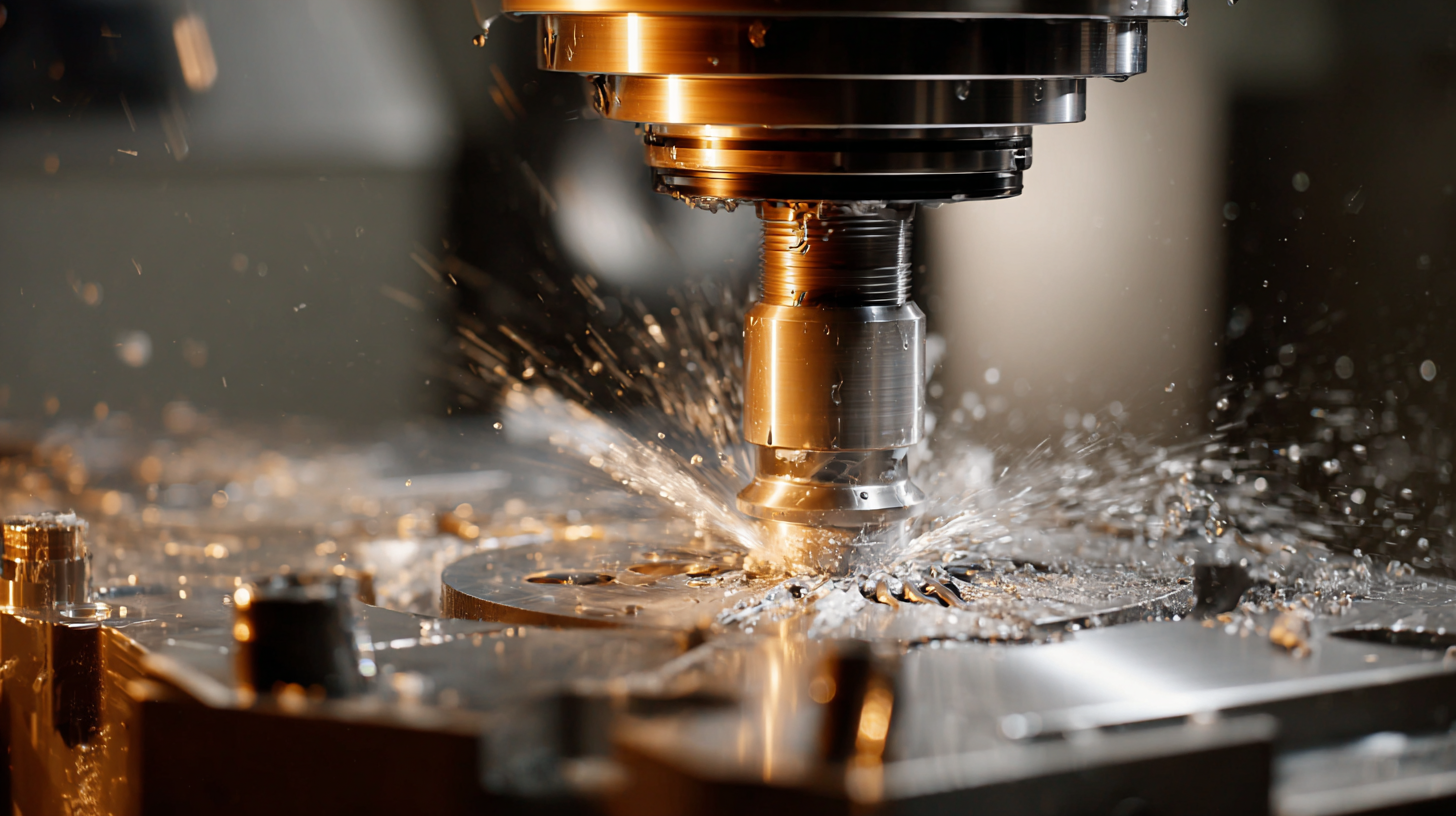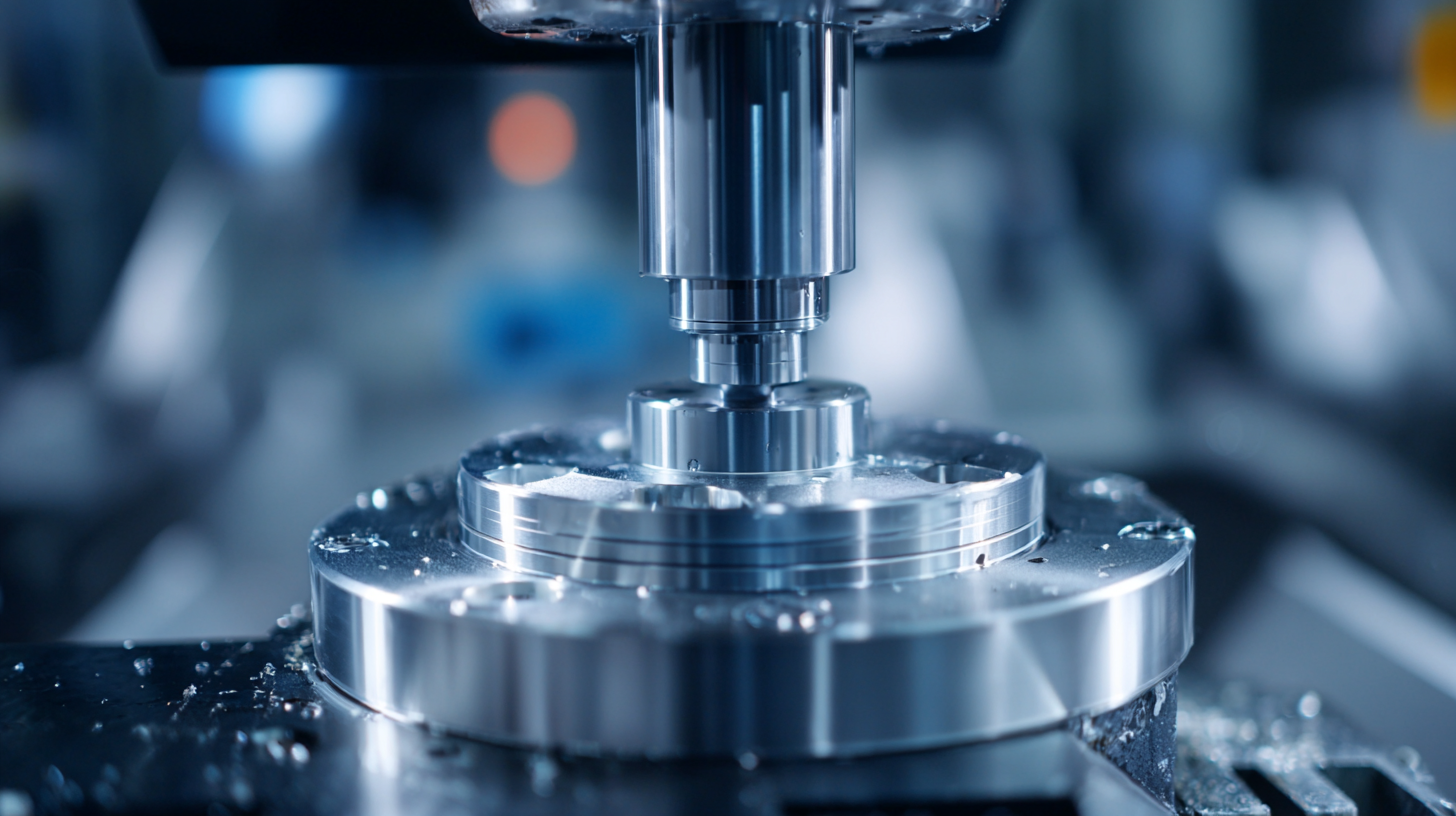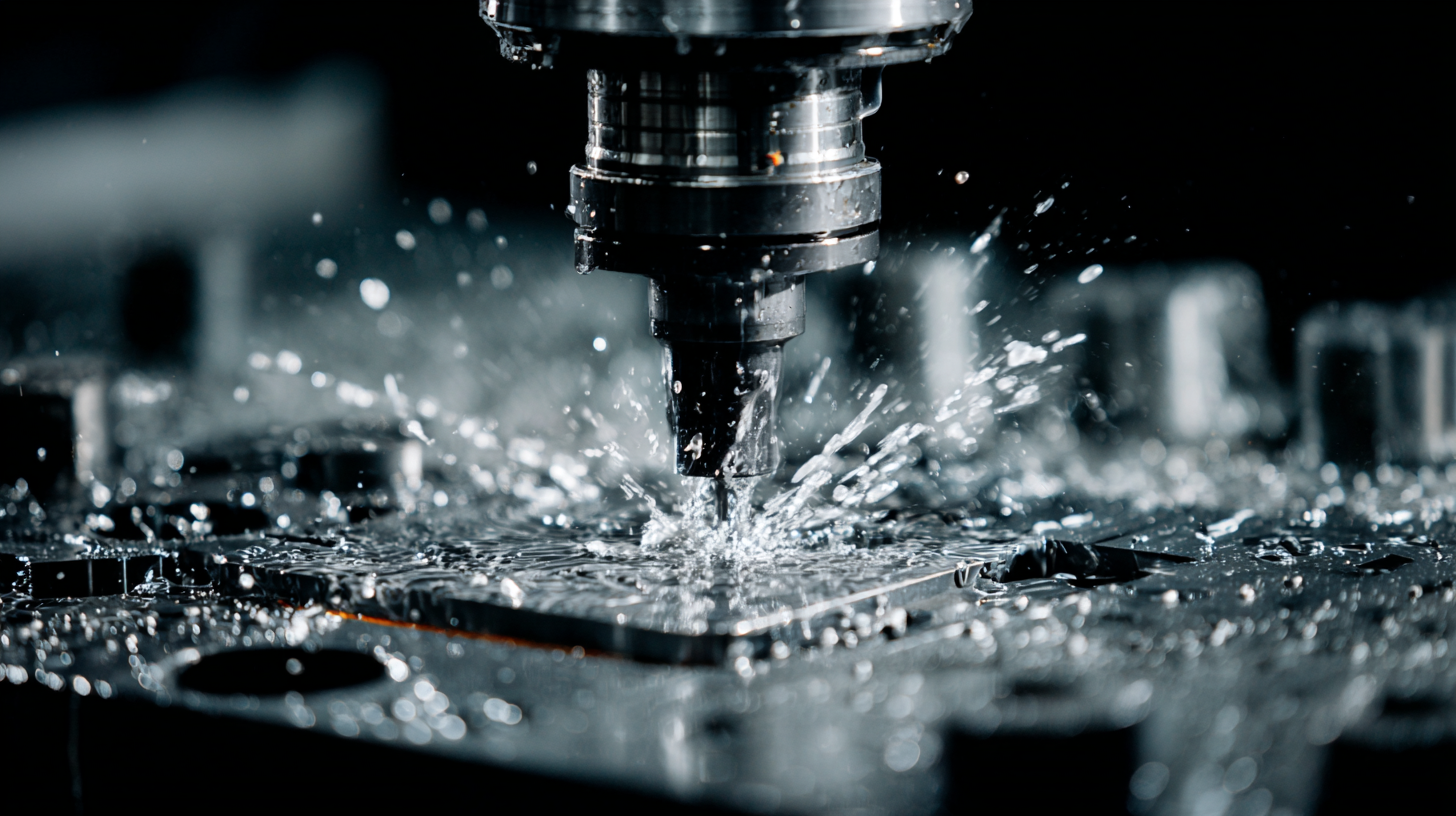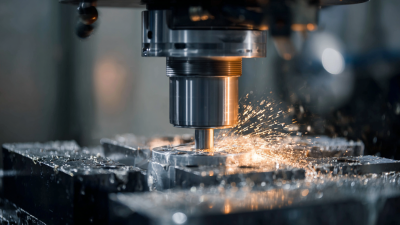Unlocking the Future of Manufacturing with Precision CNC Machining Techniques
In the ever-evolving landscape of manufacturing, the advent of precision CNC machining techniques has revolutionized the way industries operate, ensuring higher efficiency and unparalleled accuracy in production processes. As businesses strive to remain competitive, understanding and implementing these precision CNC machining methods is not just an option but a necessity. This article delves into the intricacies of precision CNC machining, highlighting its role in optimizing manufacturing workflows and improving product quality. By leveraging advanced technologies and innovative strategies, manufacturers can unlock new potentials for growth and adaptation in a rapidly changing market. This exploration will equip you with essential tips and insights, empowering your journey towards mastering precision CNC machining in the quest for a more efficient and sustainable future in manufacturing.

The Evolution of CNC Machining: From Traditional Methods to Smart Technology Integration
The evolution of CNC machining has undergone a significant transformation, transitioning from traditional methods to a more integrated and smart technological approach. The integration of artificial intelligence (AI) into CNC machining represents a pivotal shift, enhancing precision manufacturing significantly. Contrary to the notion that AI might replace traditional metrology, it actually complements and improves it, providing manufacturers with tools to ensure quality control and optimize production processes. AI-driven analytics can detect patterns and anomalies that humans might overlook, paving the way for smarter decision-making and increased efficiency.
Moreover, the adoption of technologies such as advanced robotics and 3D scanning in CNC processes showcases the trend of digitization in manufacturing. As industries move towards Industry 4.0, the collaboration between human operators and machines becomes crucial. Techniques such as non-intrusive retrofitting for maintenance enhance existing setups without overhauling them entirely, blending traditional craftsmanship with modern innovations. This synergy not only streamlines workflows but also reinforces the importance of adaptability in an ever-evolving manufacturing landscape.
Key Benefits of Precision CNC Machining in Modern Manufacturing Processes
Precision CNC machining techniques are revolutionizing modern manufacturing processes, offering a range of key benefits that enhance efficiency and product quality. The integration of these advanced techniques allows manufacturers to achieve unprecedented levels of accuracy, which is crucial in meeting the demands of today's competitive market. According to recent projections, the global CNC controller market is expected to grow from $3.2 billion in 2023 to $7.2 billion by 2033, reflecting an annual growth rate of 8.3%. This surge indicates a robust adoption of CNC technologies across various sectors.

Furthermore, the shift towards digital manufacturing technologies has notably improved productivity within numerous industries. For instance, the wire-cutting machine market is anticipated to expand steadily at a compound annual growth rate of 7.32% by 2035. This growth can be attributed to the increasing necessity for automated and high-accuracy solutions in precision engineering. By leveraging digital tools, particularly through the concept of the digital twin, manufacturers can achieve higher precision, optimize their operations, and reduce costs, underlining the imperative role of precision CNC machining in shaping the future of manufacturing.
Industry Statistics: The Impact of CNC Machining on Production Efficiency and Cost Reduction
The landscape of manufacturing is being transformed through the implementation of precision CNC machining techniques, which greatly enhance production efficiency and reduce costs. Recent industry statistics indicate that the adoption of these advanced technologies is not only improving throughput but also providing manufacturers with the tools they need to optimize their processes. As digital manufacturing technologies become more integrated into production environments, businesses can expect to see substantial improvements in operational performance, enabling them to meet the growing demand for high-quality products.
Furthermore, the market for 5-axis CNC machining centers is projected to grow significantly, bolstered by advancements such as self-optimized machine cutting and the influence of artificial intelligence on market dynamics. This growth reflects a broader trend where hybrid additive manufacturing machines are also gaining traction, leveraging various machine types to enhance efficiency. As these innovations take root, manufacturers are better equipped to navigate the challenges of modern production, leading to increased competitiveness and lower operational costs. The impact of digital transformation is palpable, marking a new era for the industry where precision and agility are paramount.
Impact of CNC Machining on Production Efficiency and Cost Reduction
Emerging Trends in CNC Machining: Automation, AI, and Industry 4.0 Transformation
The manufacturing sector is undergoing a significant transformation, driven by emerging trends in CNC machining, particularly automation, artificial intelligence (AI), and the principles of Industry 4.0. Automation in CNC machining allows for increased efficiency and reduced human error, leading to a more streamlined production process. With automated machinery, manufacturers can operate around the clock, enhancing productivity and ensuring consistent quality in their outputs.
Artificial intelligence plays a pivotal role in optimizing CNC machining processes. AI algorithms analyze production data in real-time, predicting potential failures and suggesting adjustments to improve precision. This capability not only reduces downtime but also enhances the adaptability of the manufacturing process to meet dynamic market demands. Additionally, the integration of Industry 4.0 concepts facilitates seamless communication between machines and systems, creating smart factories that leverage data analytics for better decision-making.
As these technologies converge, manufacturers can unlock unprecedented levels of efficiency and customization in their machining processes. The future of manufacturing through precision CNC machining is not just about producing parts; it's about creating a responsive and intelligent manufacturing ecosystem that anticipates needs and drives innovation.

Future Projections: The Role of CNC Machining in Sustainable Manufacturing and Green Technologies
The landscape of manufacturing is rapidly evolving, and CNC machining stands at the forefront of this transformation. As industries increasingly focus on sustainability, precision CNC machining techniques offer innovative solutions to reduce waste and energy consumption. By optimizing processes through advanced technologies, manufacturers can create high-quality products while minimizing their environmental footprint. This aligns perfectly with the growing demand for green technologies that prioritize resource efficiency and sustainable practices.
Tips: Embrace energy-efficient CNC machines that utilize advanced sensors to monitor and adjust power usage in real-time, leading to significant energy savings. Additionally, consider using materials that are recyclable or biodegradable to contribute to a circular economy.
The future projections for CNC machining in sustainable manufacturing are promising. As automation and artificial intelligence become more integrated into machining processes, manufacturers can achieve greater precision and efficiency. These technologies help streamline operations, thus enabling companies to produce smaller batches without compromising quality. Ultimately, the adoption of CNC machining not only meets the demands of contemporary manufacturing but also plays a crucial role in fostering a sustainable future.
Tips: Regularly assess the lifecycle of your products and invest in machines designed for modularity, allowing for easy upgrades and modifications, ensuring your processes stay relevant without excessive waste.
Unlocking the Future of Manufacturing with Precision CNC Machining Techniques
| Aspect | Current Trends | Future Projections | Impact on Sustainability |
|---|---|---|---|
| CNC Machining Technologies | Multi-axis machining and automation | Integration with AI and IoT | Reduction in waste and energy consumption |
| Materials Used | Aluminum, Steel, Plastics | Bio-based and recycled materials | Less environmental impact |
| Energy Efficiency | Moderate energy consumption | Smart energy management systems | Lower carbon footprint |
| Job Impact | Technician and operator roles | Increased demand for skilled workers | Job creation in green tech sectors |
| Investment Trends | Growing interest in automation | Significant funds for sustainable practices | Support for environmental goals |

